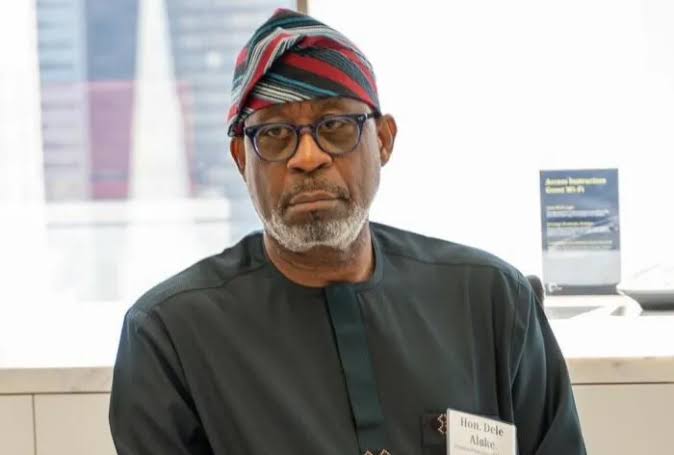On May 24th, Tinubu’s Ministers showcased the achievements of their respective ministries since the start of Tinubu’s administration. Around 11 ministers gave presentations that day. These presentations were meant to highlight their accomplishments and justify their budgets, but one particular announcement has raised eyebrows and questions among Nigerians.

When it was Mr. Dele Alake’s turn, the Minister of Solid Minerals Development, his presentation lacked substantial achievements. However, he made a significant announcement that has become a point of contention. He revealed a ₦200 billion budget for creating a National Geodata Centre, which he referred to as a “big data” initiative for the mining sector.
This announcement was striking for several reasons. First, the term “big data” was used prominently, seemingly to lend credibility to the project. The concept of big data, often associated with large-scale data processing and analytics, has become a buzzword in various industries. By associating the project with this term, it seems Alake aimed to make the enormous budget appear justifiable and aligned with modern technological advancements. However, this raises suspicions about whether the term was used more to obfuscate the project’s true nature rather than to clarify its purpose.
To understand the potential implications of this budget proposal, it’s essential to consider the role and function of the National Geodata Centre. This centre is tasked with collecting, preserving, and providing access to geoscientific data in Nigeria. Its primary beneficiaries include the mining sector, geoscientists, investors, academics, and researchers. The centre is crucial for supporting informed decision-making in mining and related activities by making comprehensive geoscientific data available.
While explaining his ministry’s achievements, Alake also revealed the establishment of the Nigerian Solid Minerals Corporation. This development was surprising for several reasons. Firstly, the establishment of such a significant entity within the ministry had not been widely reported by Nigerian media, raising questions about transparency and communication. The corporation is designed to be a government-owned company with a structure that includes private sector participation. Specifically, the private sector will hold a majority stake of 50%, with the government and the public each holding 25%.
This arrangement has raised concerns about potential corruption and favoritism, reminiscent of the issues that plagued the Nigerian National Petroleum Corporation (NNPC). The NNPC has long been criticized for its lack of transparency and accountability, leading to widespread corruption. The fear is that the Nigerian Solid Minerals Corporation could follow a similar path, especially with the significant private sector involvement which might prioritize profits over public interest
Moreover, the establishment of this mining company by Alake’s ministry has gone largely unreported by Nigerian media. The only related news came on May 17th, when Alake urged state governors to set up their own mining companies and apply for licenses. This lack of coverage and public awareness adds to the concerns about transparency and the legitimacy of the ministry’s actions.
Adding to the mystery, Alake claimed that his ministry has issued 4,000 mining licenses to investors out of over 10,000 applicants. However, the identities and selection process of these 4,000 investors remain unclear. This lack of transparency fuels speculation about whether the selection process was fair and whether the licenses were distributed to genuine investors or to those with connections to powerful individuals.
Returning to the main issue—the ₦200 billion request for the “big data” centre—it’s worth noting that the National Geodata Centre was reportedly built during the final months of Buhari’s administration in 2022. If this is the case, it raises further questions about the necessity and legitimacy of Alake’s budget proposal. Why is such a significant amount being requested for a centre that supposedly already exists? Is this new funding meant for upgrades, expansions, or entirely new initiatives? These questions remain unanswered, leaving room for speculation and doubt.
In light of these concerns, it’s crucial for the government to provide clear, detailed explanations about the proposed budget and the actual state of the National Geodata Centre. Transparency in how public funds are allocated and used is essential for maintaining public trust. If the centre indeed requires additional funding for legitimate reasons, those reasons should be clearly articulated and justified to the public.
Moreover, the government must ensure that the establishment and operation of the Nigerian Solid Minerals Corporation are transparent and accountable. This includes clear communication about its objectives, governance structure, and the criteria for selecting private sector partners. Without such transparency, the initiative risks being viewed as another avenue for corruption and mismanagement.




